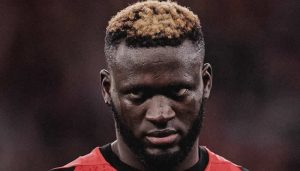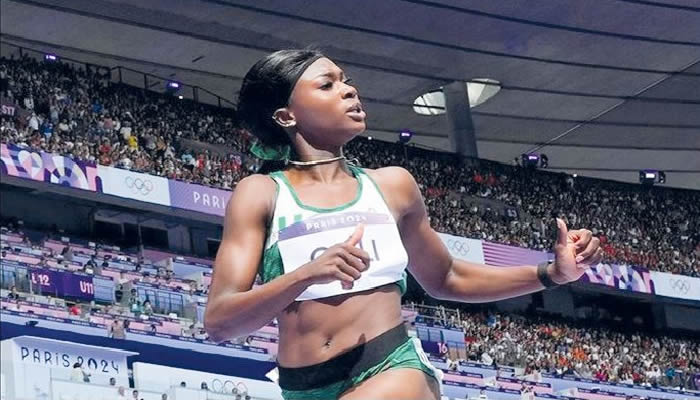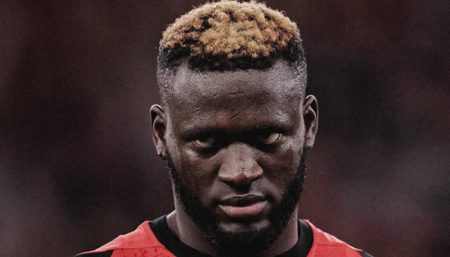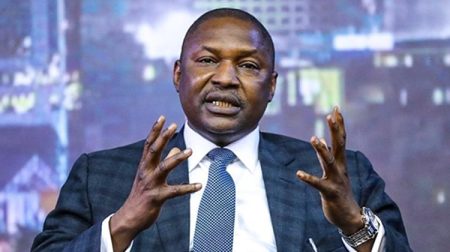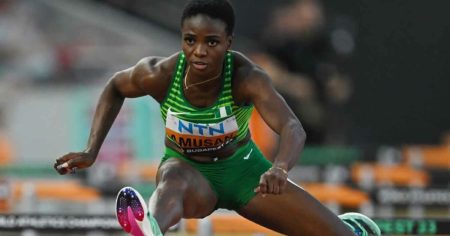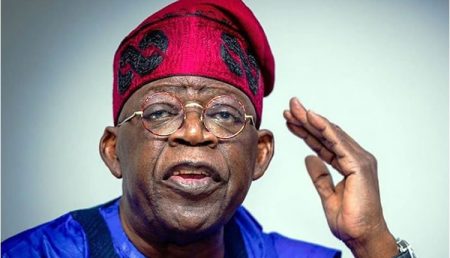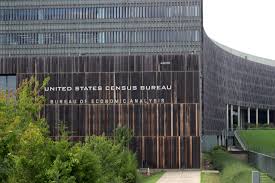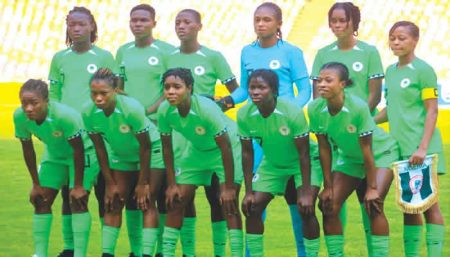The defection of promising Nigerian sprinter Favour Ofili to Turkey has ignited a firestorm of criticism directed at Nigeria’s sports administration, highlighting a recurring pattern of talent drain plaguing the nation’s sporting landscape. Chioma Ajunwa, Nigeria’s first individual Olympic gold medalist, has forcefully condemned the leadership failures within the sports federations, arguing that the exodus of athletes like Ofili is a direct consequence of systemic inadequacies and a lack of support for promising talents. Ajunwa’s condemnation resonates with a growing sentiment of frustration among Nigerian sports enthusiasts who witness the recurring narrative of homegrown athletes achieving glory under the banners of other nations. Her pointed critique underscores the urgent need for introspection and reform within Nigeria’s sporting bodies to stem the tide of talent migration and nurture the potential of its athletes on home soil.
Ajunwa’s perspective, rooted in her own historic achievement at the 1996 Atlanta Olympics, carries significant weight. As the first Nigerian and the first black African woman to win Olympic gold in a field event, she embodies the potential that lies within the nation’s sporting talent pool. Her subsequent career as a footballer, representing Nigeria at the FIFA Women’s World Cup, further solidifies her understanding of the challenges faced by athletes in different disciplines. Her criticism of the sports administration is not merely an observation but a call to action, urging those in positions of power to address the systemic issues that drive athletes away. The loss of Ofili, a world record holder and a potential medal contender on the global stage, serves as a stark reminder of the consequences of neglecting the needs and aspirations of promising athletes.
The Athletics Federation of Nigeria (AFN), under the leadership of Tonobok Okowa, finds itself at the center of the storm. While Okowa expressed disappointment over Ofili’s decision, his admission of the federation’s shortcomings in supporting the athlete reveals a deeper problem. The acknowledgment of failed efforts, despite claims of providing training grants, points to a disconnect between the federation’s actions and the athlete’s needs. The AFN’s apparent resignation to Ofili’s departure, citing her right to choose, further reinforces the perception of a lack of proactive engagement in retaining top talent. This passive stance contrasts sharply with the aggressive recruitment strategies employed by other nations, like Turkey, who are actively seeking to bolster their athletic ranks with foreign-born talent.
Ofili’s reported decision to represent Turkey, motivated by alleged frustrations with Nigerian sports administrators, adds her name to a growing list of Nigerian athletes who have sought greener pastures elsewhere. This list includes notable names like Francis Obikwelu (Portugal), Gloria Alozie (Spain), Florence Ekpo-Umoh (Germany), Femi Ogunode (Qatar), and Salwa Eid Naser (Bahrain). The recurring pattern of athletes switching allegiance highlights a systemic issue within Nigerian sports, suggesting that the problems extend beyond individual cases. The allure of better support, training facilities, and financial incentives offered by other countries presents a compelling alternative for athletes striving to reach their full potential, often leaving them feeling undervalued and unsupported in their home country.
The reported financial incentives offered by the Turkish athletics federation, allegedly reaching as high as $500,000 for high-profile transfers, underscore the stark contrast in resources and commitment between nations. While the AFN grapples with internal issues and limited resources, other countries are actively investing in attracting top talent, creating a competitive landscape where Nigeria struggles to retain its best athletes. This financial disparity exacerbates the existing challenges faced by Nigerian athletes, making it increasingly difficult for the nation to compete on the global stage and cultivate a thriving sporting ecosystem.
The situation surrounding Ofili’s potential transfer serves as a microcosm of the broader challenges facing Nigerian sports. The loss of a world-class athlete like Ofili is not just a blow to national pride but a tangible representation of the systemic issues that need urgent attention. The AFN’s acknowledgment of its shortcomings, coupled with Ajunwa’s scathing critique, highlights the need for a comprehensive overhaul of the sports administration. The focus should shift towards creating a supportive environment where athletes feel valued, nurtured, and empowered to achieve their full potential, representing their nation with pride rather than seeking opportunities elsewhere. Until these fundamental issues are addressed, the cycle of talent drain will likely continue, hindering Nigeria’s ability to realize its full sporting potential on the world stage.



